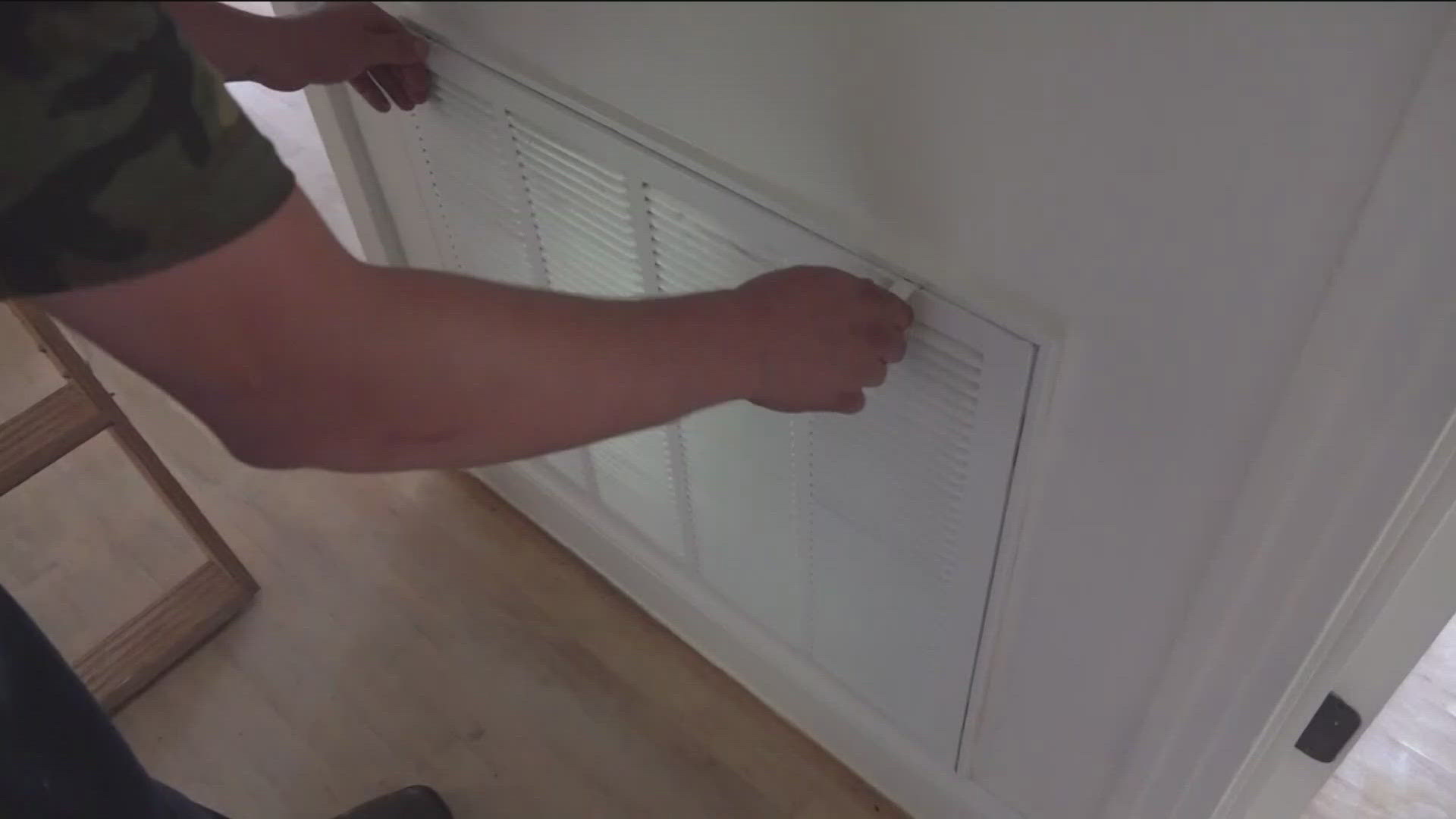WACO, Texas — As the temperatures rise heading into late spring and summer, it's important to make sure the HVAC systems in your home are good to go for the hottest time of the year.
David Sanchez Jr., the lead technician of Cool Dreams Services, said this is also the busiest time of the year for them, as Central Texans are looking for ways to stay cool. It's why he and his team are doing preventative maintenance of HVAC systems and encouraging homeowners to do the same.
"Whenever we start getting to those 100-degree temperatures, you want the unit to be functioning to the best of their ability," Sanchez said.
Sanchez said when it gets warmer, most issues stem from the outside unit, and they will see breakers tripping or parts going out. That's why it's important to provide the proper care to the outside unit.
"One thing they can do is spray it down with water, a little bit of pressure water, to get all the gunk off the top," Sanchez said. "Not too high pressure where it's bending the coils in, but you always want to make sure that water is passing through your coil as you're spraying it. If it's not passing through, that usually means you have buildup on the inside of the coil."
Sanchez said you should spray the entire unit, every side of it, and do the spraying from top to bottom. Keeping the outside unit clean will prevent it from overheating when it's working hard to keep your home cool.
"We also like to make sure that the suction line, or the bigger line, is insulated to keep the line from sweating too much or causing the lines to freeze up," Sanchez said.
Your drain by the outside unit should also be dripping.
Moving inside, windows and doors should be secured to keep the cool air in. Air filters also play a big role in having a functioning HVAC system.
"With how hot it's about to start being, I would say check them every 15 days, replace them every 30 for sure," Sanchez said.
You want to maximize airflow and also prevent further damage, which can be caused by build-up on air filters. It's also why Sanchez recommends safety switches for the units in attics.
"All these things do is if you do get a buildup, water buildup anywhere in your system, it'll cut the unit off and keep water from going down into your sheetrock or getting into your home," Sanchez added.
Sanchez also highly recommends you have insulation about a foot to a foot-and-a-half above your rafters to keep the heat from traveling down to your living quarters.
If the temperature of your home continues to rise, turn off the unit entirely and call a service and repair company. However, it's important to make sure the company is insured and licensed to avoid any scams, shoddy work or having to pay more on the back end.
More from 6 News:

